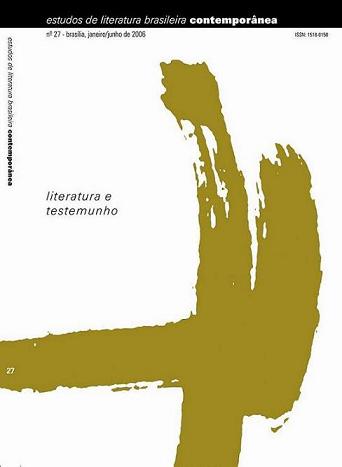A estratégia da revolta:
literatura marginal e construção da identidade
Abstract
Neste ensaio, pretendo testar o rendimento do conceito camuseano de revolta e de homem revoltado para pensar o estatuto político-existencial da literatura marginal, como movimento comprometido com a afirmação identitária das comunidades periféricas e engajado no seu autoreconhecimento como grupo, dotado de uma determinada cultura e de projetos coletivos. Além disso, a lógica interna do hibridismo inerente à linguagem heterogênea destes escritos balizará uma reflexão sobre a sua fatura estilística, a partir do contraponto entre o mero ecletismo e a tensão interna característica das mestiçagens criativas, segundo Serge Gruzinzki, em seu O pensamento mestiço.
Downloads
References
CAMUS, Albert. O homem revoltado. Trad. de Virgínia Motta. Lisboa: Edição Livros do Brasil, s/d.
FERREZ (org.). Literatura marginal: talentos da escrita periférica. Rio de Janeiro: Agir, 2005.
GRUZINSKI, Serge. O pensamento mestiço. Trad. de Rosa Freire d’Aguiar. São Paulo: Cia.das Letras, 2001.
RODRIGUEZ, Benito Martinez. “Mutirões da palavra: literatura e vida comunitária nas periferias urbanas”. Estudos de Literatura Brasileira Contemporânea, nº. 22. Brasília, jul. /dez. 2003, pp. 47-61.
Downloads
Published
How to Cite
Issue
Section
License
Authors who publish in this journal agree to the following terms:
a) The authors maintain the copyright and grant the journal the right of first publication, the work being simultaneously licensed under the Creative Commons Attribution License-Non Commercial 4.0 which allows the sharing of the work with acknowledgment of the authorship of the work and publication this journal.
b) Authors are authorized to enter into additional contracts separately, for non-exclusive distribution of the version of the work published in this journal (eg publish in institutional repository or as a book chapter), with authorship recognition and publication in this journal.
c) Authors are allowed and encouraged to publish and distribute their work online (eg in institutional repositories or on their personal page) after the editorial process, as this can generate productive changes, as well as increase the impact and citation of published work (See The Effect of Free Access).
d) The authors of the approved works authorize the magazine to, after publication, transfer its content for reproduction in content crawlers, virtual libraries and the like.
e) The authors assume that the texts submitted to the publication are of their original creation, being fully responsible for their content in the event of possible opposition by third parties.


